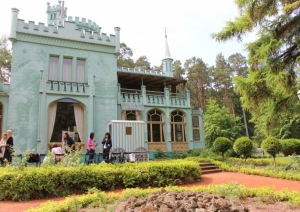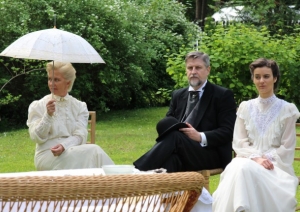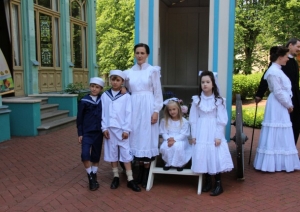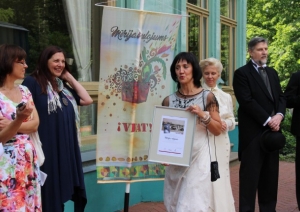On the 21st of June at Jūrmala’s Morbergs House, the filming of the first frames of Kristīne Želve’s documentary “Mērija’s Journey” was celebrated, symbolically marking the start of the busiest Summer yet for the filming of projects supported by the National Film Centre’s program “Latvian Films for the Latvian Centenary”.
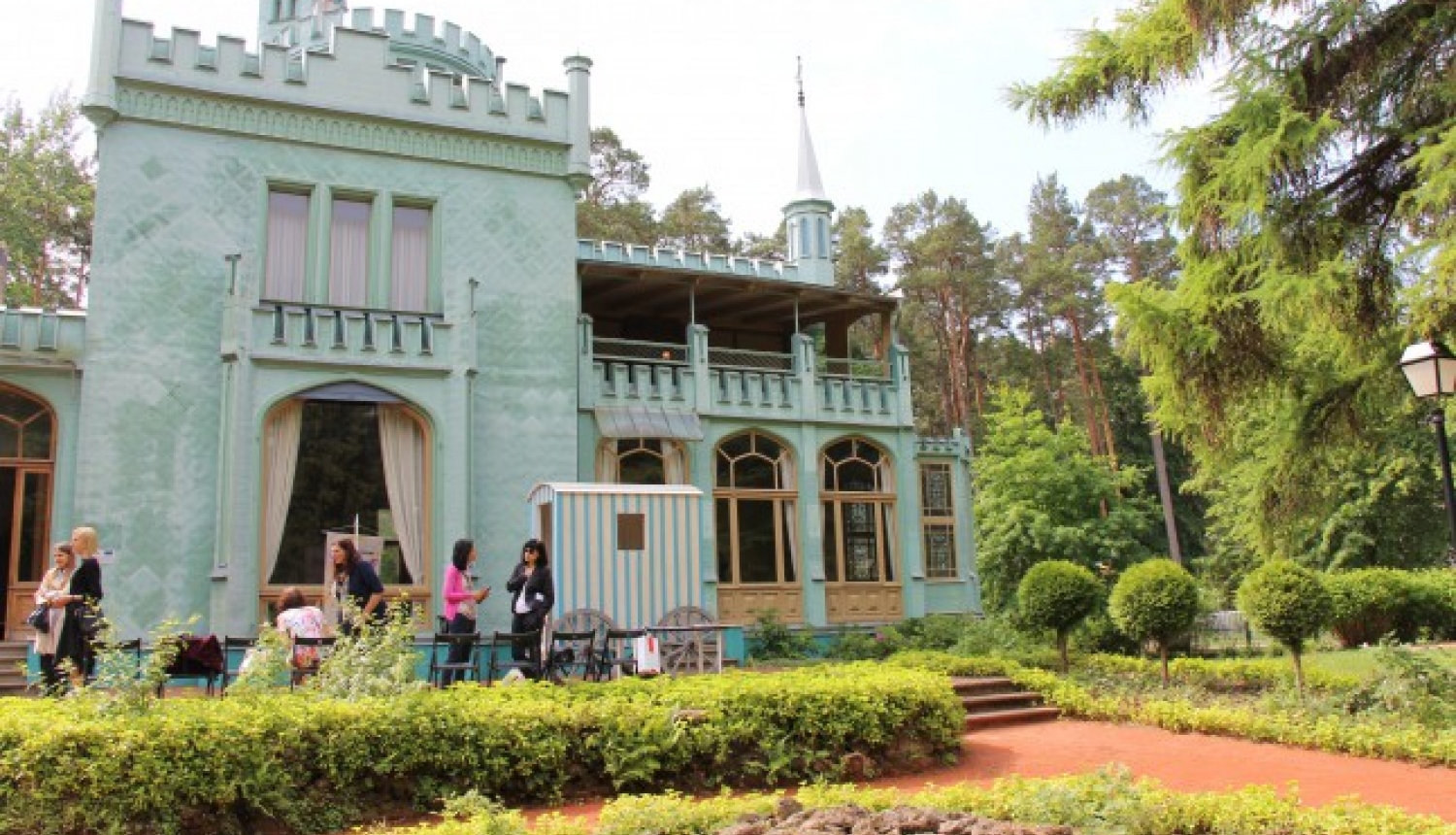
“Mērija’s Journey” is one of eight documentaries that are high-quality, multi-genre and socially significant, and featured in the Latvian Republic’s centenary program. The National Film Centre and the filmmakers would like to stress that the first moments in reception, which end many people’s efforts and inspiration, are just as important as the premiere of this work and the other large projects that are expected throughout 2018 (the premiere of “Mērija’s Journey” is planned for the 4th of May 2018, in the Latvian film marathon).
Invited to the first frame celebration were friends, supporters and media, and the upcoming film was introduced by director Kristīne Želve and producer Elvita Ruka. Director of the National Film Centre Dita Rietuma, and Jūrmala City Council Vice-President Rita Sproģe wished the filming and production team good luck. The celebration was also attended by the Ministry of Culture’s Latvian National Centenary office representative.
Mērija Grīnberga (1909-1975), who worked at the art gallery, was the only person who by choice accompanied 700 boxes filled with works from Latvian museums, which toward the end of World War II were sent by the German army to Sudetenland (at the time, German occupied Czechoslovakia). Surprisingly, after a year and a half she managed to bring the boxes back to Rīga. Unfortunately, Mērija’s efforts were not recognized or honored at the time – in fact, she was disgraced by Soviet power thus accepted her fate and told almost no one of her experiences.
Mērija Grīnberga comes from a significant Latvian family of intellectuals, and among her relatives is established painter Jāzeps Grosvalds. Her amazing life journey under several flags, in contrast to the bright personality of her family’s legacy, would have never been revealed to the general public and simply fallen into oblivion had the Riga History and Navigation Museum Archives not discovered the written diaries of the protagonist’s mother- the “black book” and the bright exercise book memories, in which can be found the words: “for that I am, I thank my parents. For who I am, I thank my husband. And for that I still am something, I thank my children”.
This is why the historical staging begins with Mērija’s parents – Lutheran pastor in St. Petersburg Jānis Grīnbergs (1869-1923) and Mērija Grosvalds (1881-1973) – meeting in 1904 in a Jūrmala mansion and then in October of 1907 marrying at the Rīga Dome (then, Mara Church), in the first German marriage ceremony to take place in Latvian language.
Artist Iveta Vecenāne painted a special flag that will accompany the filming group to various reception areas – she said: “How would beautiful life would be if you could with honor wear the crown and with honor carry the flag!”. This symbolic time called for silk paintings embedded with the unique work of Latvian scientist Inga Ļašenko who invented amber thread, because Mērija Grīnberga’s mother – founder of the first folk costume and folk art showroom in Rīga – wrote in her diaries: “As a child I heard stories about our long-ancient amber jewelry. Once, when we visited my mother’s mother, on her desk was a box of motley buttons. Between the buttons I saw amber necklaces, strung with dark amber pieces. I asked for them, but only after many years, as I realized my favorite piece of folksy ancient art was significant to Rucava”.
Through extensive testimonial and historical research, the film makers are conviced that Mērija’s unusual fervor, self-denial and reasoning behind why she sought to protect priceless treasures and the Song Festival and Midsummer flags following the war instead of remaining in the West, is rooted in her family values and strength.
Film director and screenplay author is Kristīne Želve, director of photography Andrejs Rudzāts, producer Elvita Ruka, artist Ieva Stūre, editor Asnāte Vasiļjeva (29225127). The film is financially supported by the National Film Centre, Edinburgh Episode Filming – Jūrmala City Council.
For detailed information on the film “Mērija’s Journey”, email welcome@vivatfilms.com, and the coming days will be available for photo opportunities of the first few days of filming.
Studio VIVAT! website www.vivatfilms.com.
In the National Film Centre program Latvian Films for the Latvian Centenary, six feature films have been commissioned, among them Latvian literary themes, historical fiction, contemporary tales and stories of the recent past; the majority of the films are directed at children and a young audience. The feature films for the Latvian centenary are directed by Varis Brasla, Gatis Šmits, Anna Viduleja, Dāvis Sīmanis, Ināra Kolmane and Madara Dišlere. The documentary film projects selected in competition to be produced as eight feature-length films are being directed by Askolds Saulītis, brothers Lauris and Raitis Ābeles, Kristīne Briede and Audrius Stonis, Ilona Brūvere, Dzintra Geka, Gints Grūbe, Kristīne Želve, Ivars Seleckis. Also supported are two animation film projects, taken on by directors Roze Stiebra and Edmunds Jansons for the Latvian centenary.
For more information on the projects in the program, you can access the National Film Centre catalog Latvian Films for Latvian Centenary,
All film applications can be streamed at the portal filmas.lv in the Latvian centenary section.



